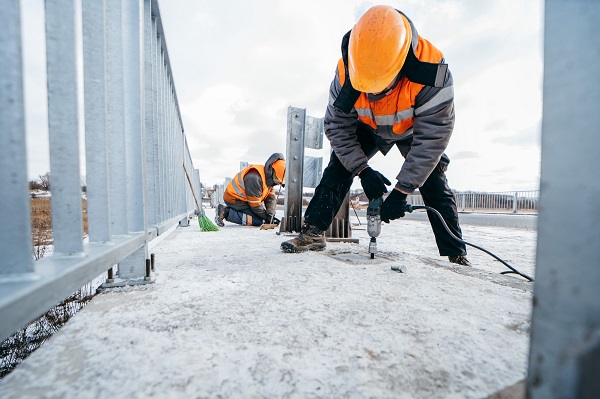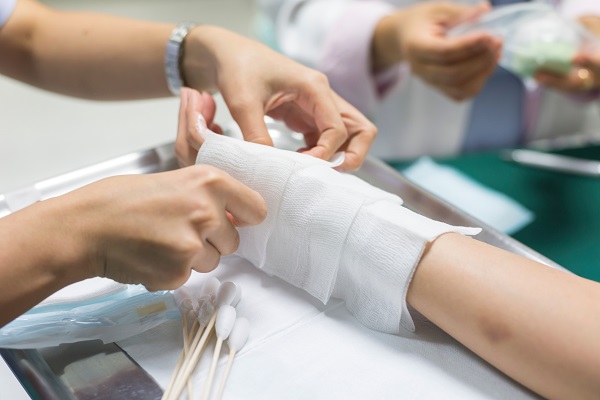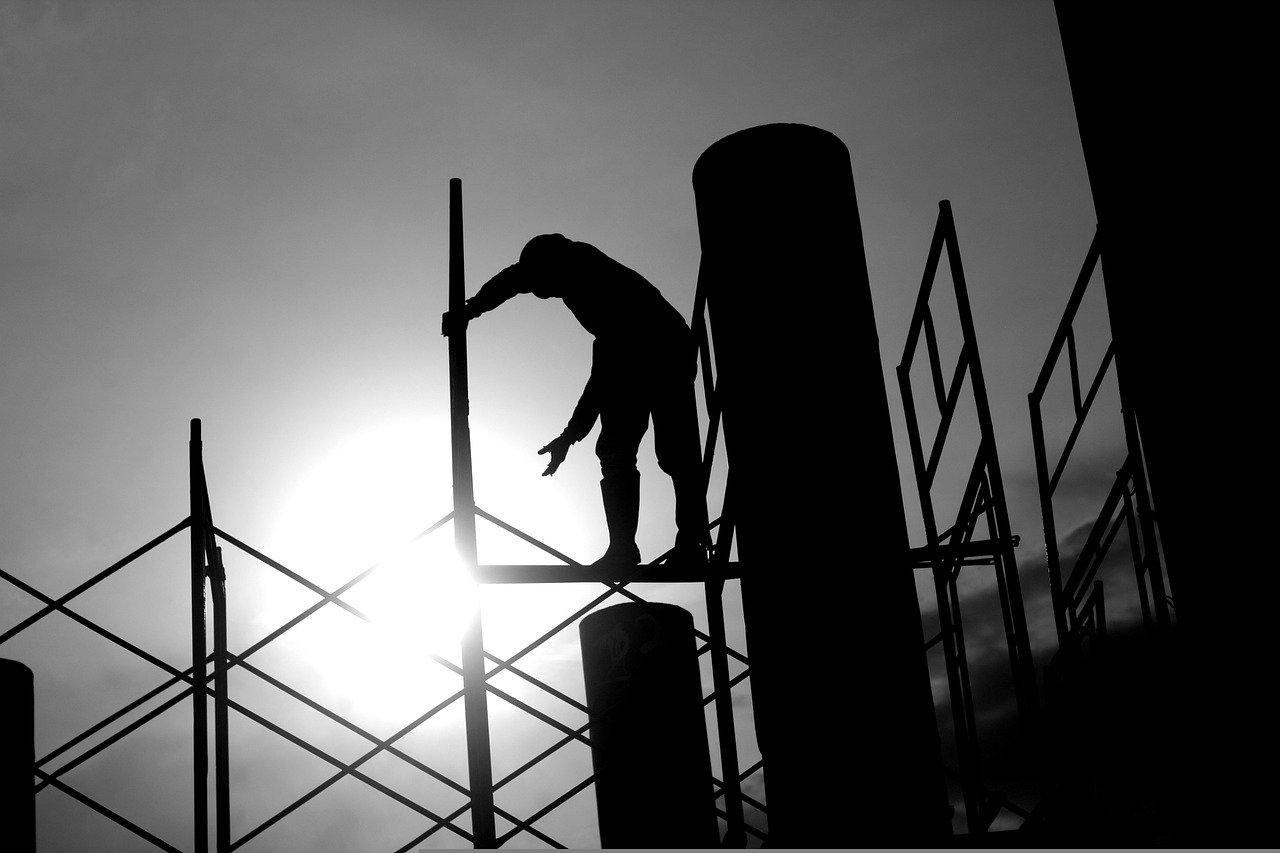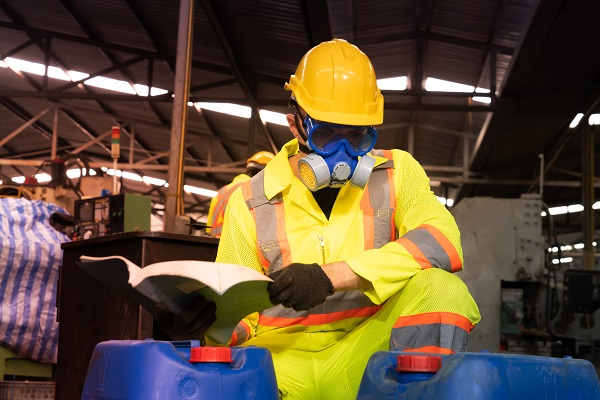
Winter can be a difficult time for workplace safety.
Winters in the northeast can be long and cold, and working in winter weather can bring additional workplace hazards that can result in injury, illness, or even death if precautions aren’t taken.
If you work outside, it’s vital that you take the necessary steps to keep safe during the cold months of the year. But even if you don’t work outside during the winter, there are things you should do to avoid getting injured in a work accident. Here are some of the most common winter hazards found in workplaces and how to avoid them.
Slips, trips, and falls
Ice and snow can create slick surfaces, which can easily cause slips, trips, and falls that lead to serious work injuries. Ice can form on sidewalks, parking lots, and other areas where workers walk, increasing the risk of a fall. It is important to wear proper footwear with good traction to reduce this hazard. Employers should place floor mats and caution signs in areas where the ground is slippery. Also, any areas prone to icing should be treated with rock salt or sand, especially stairways, which can be dangerous when ice accumulates on steps, handrails, and landings.
Exposure to cold weather
Exposure to cold temperatures can lead to various work injuries and illnesses, from frostbite to hypothermia. Employees who work outdoors during the winter should be instructed to dress warmly and to limit their exposure to cold temperatures as much as possible by taking frequent breaks in warm areas. Thermal gloves, hats, and insulated boots can help keep workers warm and reduce the risk of hypothermia and frostbite.
Car accidents
Slick roads and decreased visibility due to darkness and snow can make it difficult for workers who drive to do their jobs safely. When driving for work in the winter, be sure to slow down, increase your following distance, and use extra caution when turning and braking.
Employers can also protect their workers by keeping work vehicles well-maintained and providing information about winter driving safety, such as sharing resources from organizations like the National Highway Traffic Safety Administration (NHTSA). Additionally, employers can provide emergency kits in work vehicles with items like blankets, flashlights, and emergency flares.
Fires
The two main sources of workplace fires during the winter are malfunctioning heating systems and electrical equipment. Malfunctioning heating systems are especially hazardous in older buildings or those with outdated electrical wiring. For example, if a heater has worn-out wiring or insufficient insulation, it could spark a fire. Loose wires and overloaded connections are also a fire hazard at any time of year.
To avoid work injuries or accidents related to fires, employers should inspect their building’s heating system regularly and make sure it’s up-to-date with the necessary safety features. For example, electrical cords and outlets should be kept clear of combustible materials like paper and furniture, and fire extinguishers should be easily accessible throughout the workplace.
Carbon monoxide poisoning
Carbon monoxide poisoning is one of the most serious and potentially life-threatening winter work hazards. Carbon monoxide is an odorless, colorless gas created by burning certain types of fuels, such as wood, propane, natural gas, oil, and coal. When inhaled, carbon monoxide can cause severe headaches, dizziness, nausea, confusion, and disorientation. If left unchecked, carbon monoxide poisoning can even lead to death.
Employers should always take the following precautions:
- Ensure that all outdoor heaters are inspected and serviced before use.
- Never use fuel-burning heaters or equipment in an enclosed area.
- Ensure the exhaust pipe for any fuel-burning equipment is located away from the workspace.
- Install carbon monoxide detectors in areas where fuel-burning equipment is used.
- Have all fuel-burning heaters and equipment checked regularly for gas leaks or other potential problems.
Electrical hazards
When working outside in the winter, exposed wires, equipment, and outlets are all vulnerable to weather-related damage. This can result in serious work injuries or even a fatal work accident.
To prevent electrical hazards in the workplace during the winter months, employers should:
- Make sure that any exposed wires are insulated or protected from the elements.
- Have qualified electricians check all power tools, outlets, and equipment for signs of wear or damage from cold weather conditions.
- Test generators and other emergency power sources regularly to ensure they work properly.
- Install adequate drainage systems around power sources to prevent water accumulation.
- Provide employees with appropriate Personal Protective Equipment (PPE) when working with electrical equipment outdoors in the winter.
- Provide employees with proper safety training on working with electricity in the winter months.
- Post signs warning employees of any potential electrical hazards in the area.
Repetitive stress injuries
Cold weather can increase the risk of repetitive stress injuries due to the increased effort required for tasks like shoveling or lifting in cold temperatures. Shoveling snow for work can be a physically demanding activity that causes exhaustion, overexertion, dehydration, back injuries, and even cardiac issues. Workers should warm up before the activity, scoop small amounts of snow at a time, push the snow instead of lifting it when possible, and take frequent breaks in warm areas. While shoveling snow, remember to keep your back straight, lift with your legs, and do not turn or twist your body.
Snow blower accidents
To protect workers from electrocution, employers should ensure that powered equipment, such as a snow blower, is properly grounded. In addition, when performing maintenance or cleaning, always confirm that the equipment is properly guarded and that power sources are disconnected.
When workers attempt to clear jams with snow blowers while the equipment is turned on, they frequently suffer lacerations or amputations. Never try to unclog a clog by hand. Instead, turn off the snow blower and wait for all moving parts to stop before clearing wet snow or debris from the machine with a long stick. Always maintain a safe distance between your hands and feet from moving parts, and never refuel a snow blower while the machine is running or the engine is hot.
Talk to a workers’ comp lawyer about your options.
In New England, the cold, snowy winter months can bring a number of hazards to the workplace that can cause severe injuries and illnesses. That’s why if you’ve suffered a work-related injury or accident due to a winter hazard, it’s important to know your rights and speak to an experienced workers’ compensation lawyer as soon as possible.
If you’ve been injured on the job due to a winter hazard, the Law Offices of Deborah G. Kohl can help you understand your rights and fight for the workers’ compensation benefits you deserve. Don’t hesitate to seek legal advice if you’ve been injured at work in an accident. You may be entitled to compensation for your medical expenses, lost wages, and other losses. Contact us today to learn more about how we can help you. We have three offices in Rhode Island and Massachusetts and handle workplace injury claims in both states.










